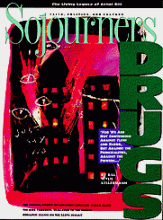Mississippi Masala is neither great nor completely bad. It sort of trundles along at a nice, comfortable, and familiar pace. And that's the problem with Mississippi Masala. The viewer has been down this road before. There is a lot going on in this film: love, lust, broken taboos, humor, and poignancy. Unfortunately, none of these themes are developed to any reasonable or believable extent.
Mississippi Masala is a love story between Demetrius (Academy Award-winner Denzel Washington), a young black man born, raised, and tired of Greenwood, Mississippi, and Mina (newcomer Sarita Choudhury), a younger Indian woman whose family lives and works in a hotel run by an extended family of Indians. They meet quite by accident, fall in lust, and ostensibly in love, break all the cultural and regional taboos, and run away together to parts unknown to do whatever they are going to do (the film doesn't say).
If you haven't guessed it already, I was not impressed with this movie. At least I was not impressed with the young Afro-Asian lovers. The Afro-American aspects of the film--relationships among Demetrius' family, Southern black ways of being, etc.--didn't move me because I know them, lived them, and have seen them before on film. But what did intrigue me was the relationship between Mina's father Jay (Roshan Seth) and his homeland, Uganda.
Jay is an Indian, but only because his parents were Indian. He was born, raised, and educated in Uganda. His closest friend, Okelo, is a black African. Jay has built a reputation as a lawyer defending blacks throughout the country. He and his wife, Kinnu, who is Indian, and a very young Mina are "living large" in Kampala among the "natives." But that comes to an abrupt halt in 1972 when now long-deposed dictator Idi Amin comes to power and decrees that all Indians living in Uganda must leave within 90 days.
Read the Full Article
